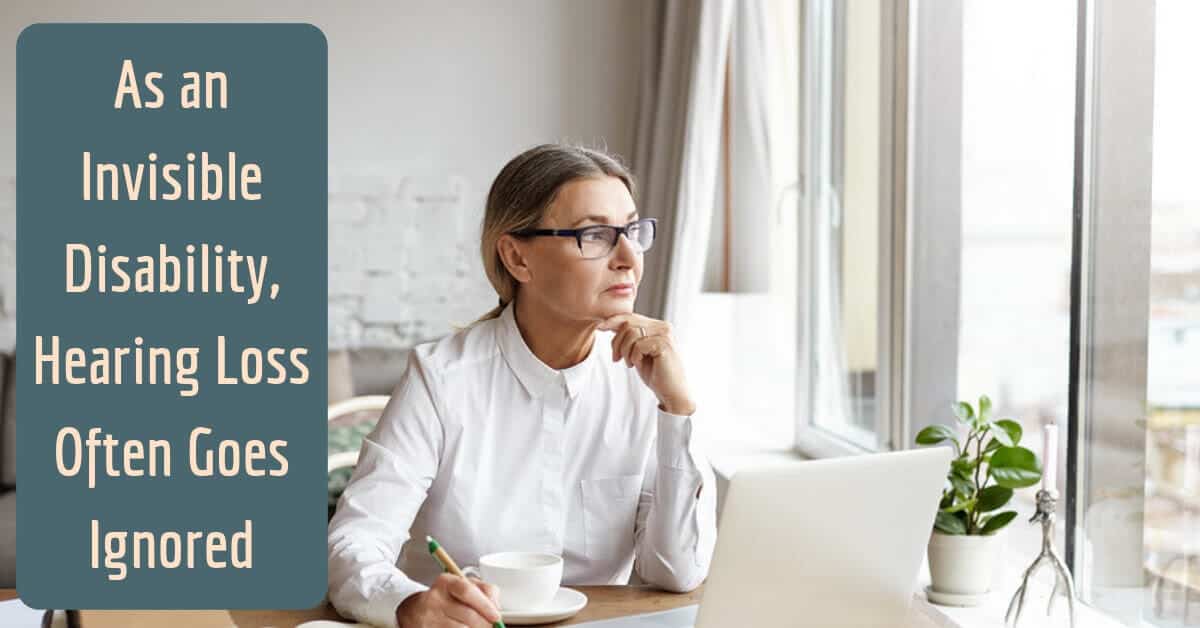- How to Recognize the First Signs of Hearing Loss - June 5, 2025
- Understanding the Connection Between Tinnitus and Weather - May 17, 2025
- The Most Unexpected Reasons Hearing Aids Can Malfunction - May 9, 2025
Your hearing is fundamental to your life. Healthy hearing is part of how we move through the world smoothly and communicate with confidence. It helps us share our experiences with others, keep up at the workplace and enjoy the people and places we love. Our hearing is deeply connected to our physical, mental and social health.
Despite how important healthy hearing is, there’s a discrepancy between when people notice hearing issues and when they take action. On average, people wait seven years to address their hearing loss – often allowing the condition to worsen. Seven years of struggling with your hearing is 2,555 days too many! The earlier hearing loss is addressed, the easier it is to treat and the more time you get to spend hearing richer, fuller sound.
Recognizing Hearing Loss
Hearing loss can manifest itself in many different ways but most often permanent hearing problems develop gradually over time making them much harder to prioritize. A small hearing issue today can grow incrementally worse over time without the person affected registering how their hearing issues are increasing. A hearing disability isn’t always recognizable to those around you, and especially for those who live a quiet life, hearing struggles may not seem like a constant presence.
Still, the signs of hearing changes shouldn’t be ignored. The farther you let hearing loss progress, the harder it is to adjust to hearing aids and other hearing treatment. One of the first signs that you may be having hearing issues is finding it hard to understand speech. Despite hearing sounds, the words may sound muffled or mumbled especially for speakers with high voices, like children.
Other signs of hearing loss include turning the volume up towards the maximum audio levels on stereos, phones, televisions and other media players. Sometimes hearing loss will start to change your social behavior, subtly steering you away from going to events and gatherings that will be noisy or hard to take in. Hearing problems can provoke anxiety and depression that change your moods and quality of life.
Address Hearing Loss Early
Why live with compromised hearing? Many people feel like their hearing loss is a “minor issue” but hearing loss creates cognitive strain that is a big deal. When you struggle to hear things, your brain has to race to put together meaning from an incomplete sense of sound. This makes our audio processing slower and less accurate and it also takes brainpower away from other mental tasks. Fundamentally, trying to hear with hearing loss stresses our brains out and makes other cognitive functioning more exhausting and difficult. The worse our hearing gets, the more changes the brain makes to try to comprehend sound.
When hearing loss is left untreated for a long time, our mental ability to hear is often far different from the listening patterns of healthy hearing. Adapting to hearing aids and other assistive devices requires more effort as the brain re-learns methods of hearing a fuller palette of sound. Seeking help for hearing issues early helps make the transition to hearing treatments far more fluid. When the brain has spent less time working around hearing problems, it can more easily recognize the sound signals hearing aids and assistive devices deliver.
Don’t Ignore Hearing Loss
More and more data is coming to light about the negative effects of untreated hearing loss. People with untreated hearing loss earn significantly less on the job and incur significantly more healthcare expenses over time. Hearing loss can greatly lessen a person’s quality of life. Making them vulnerable to depression, anxiety and isolation.
The mental strain that hearing loss creates doesn’t just change your hearing, it also impacts your physical wellbeing. The attention that hearing loss requires of the mind gives us less cognitive acuity for other tasks, even our innate sense of balance and coordination. Experiencing a fall or accident is far more likely if you struggle with untreated hearing loss. Sustained hearing problems also raise the incidence and severity of dementia, including Alzheimer’s disease.
Roseville Diagnostic Hearing Center
Untreated hearing loss can turn into a big problem that affects your whole life but there’s good news. Treating hearing loss with hearing aids and assistive devices improve your hearing and help curtail the negative effects of hearing loss. Even if you have been procrastinating on seeking help for your hearing loss, treatment is possible and can greatly improve your hearing health.
Have you noticed a hearing concern recently? Take action and help preserve and improve your hearing sooner rather than later. At Roseville Diagnostic Hearing Center, we can help – give us a call today!

